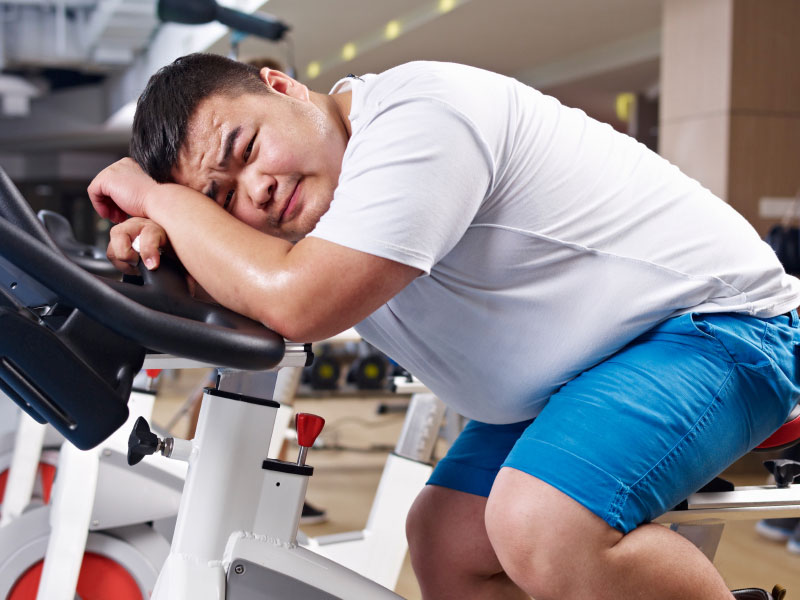Why Don’t We Lose Weight Immediately After An Exercise Even Though The Burning of Fat Has Already Occurred?

Why Don’t We Lose Weight Immediately After An Exercise Even Though The Burning of Fat Has Already Occurred?
The weight-change during exercise is mostly about your balance of liquids.
When your body burns fat, the carbon in the fat is exhaled in your breathing, as CO2, so this fraction of the fat is lost immediately.
But the hydrogen in the fat, is combined with oxygen from the air you breathe in to form water – H2O.
So when you burn fat, do exhale, and thus immediately get rid of, a fraction of the weight: namely that part of the fat which is carbon, is lost immediately.
But on the other hand, you take up oxygene to be combined with the hydrogen and produce water, which stays in the body until you get rid of it by sweating or in the form of urine.
Usually when you exercise, sweating results, so in that case you DO get rid of the water produced too, in fact usually you sweat out a lot more water than the water that is produced in fat-metabolism, so you need to drink extra to avoid getting dehydrated.
In short: the central premise of this question is flawed.
Usually when exercising (whenever we sweat) we DO immediately get rid of the chemicals which used to make up the fat, and we thus DO “immediately” lose the weight.
The carbon leaves the body in the form of exhaled CO2.
The Hydrogen leaves the body in the form of sweated and evaporated H2O.
You burn only on the order of 100g (0.2 lbs) worth of fat for every hour of exercise though, and sweating 1-2 lbs is common, so MOST of the weight-change when exercising is quite simply water-loss.